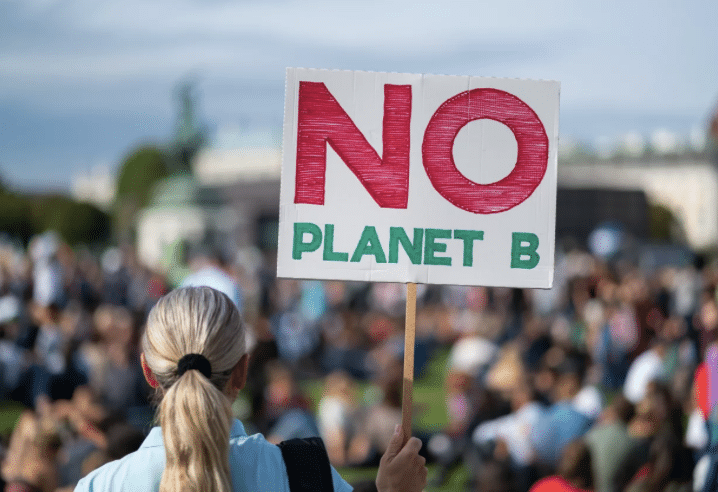Can the EU Tame the ‘Wild West’ of Green Claims?
By Beatrice Rus, Consultant, Energy and Circular Economy, Hanover Communications
The publication of the so-called Green Claims Directive on 22 March 2023 is the latest attempt by the European Commission to protect consumers against greenwashing in advertising.
The proposal for a Directive on substantiation and communication of explicit environmental claims, to give the directive its full and unwieldy name, complements last year’s proposal for a Directive on Empowering consumers for the green transition by providing more specific requirements on the substantiation, communication and verification of green claims.
Once adopted, the Directive will massively impact companies making green claims on the products and or services they sell in the EU.
Many companies in the EU have used greenwashing as a marketing strategy, claiming their goods or services are “green” to appeal to customers.
Many companies in the EU have used greenwashing as a marketing strategy, claiming their goods or services are “green” to appeal to customers.

According to a European Commission study from 2020, 53.3% of examined environmental claims in the EU were found to be vague, misleading, or unfounded.
Why now?
EU consumers’ interest in their environmental footprint and desire to contribute to a circular economy by purchasing sustainable products has increased in recent years. So much so that claiming that products or services are “green”, “climate neutral”, and “plastic free” has become a marketing strategy for companies wishing to appeal to this growing market segment.
Currently, EU law does not explicitly regulate environmental claims. This has partly led to a proliferation of these claims, many of which are seen as greenwashing. According to a European Commission study from 2020, 53.3% of examined environmental claims in the EU were found to be vague, misleading, or unfounded, while 40% were unsubstantiated. The study also identified more than 230 “green” labels subject to different levels of robustness, supervision, transparency, and governance models. As a result, many consumers feel more confused than empowered to make green choices while genuinely sustainable companies face unfair competition from their less sustainable counterparts.
The Commission first attempted to tackle this back in March 2022, when it came up with a proposal amending the Unfair Commercial Practices and the Consumer Rights directives. If adopted, this proposal would entail a clear ban on generic and unsubstantiated claims.
In a second stage, the Commission has now published the Green Claims Directive (CGD) which would provide detailed rules on substantiating, communicating and verifying environmental claims.

The Green Claims Directive also tackles the increasingly common claims relying on greenhouse gas emission offsetting
 According to the proposals, if companies choose to make an explicit green claims they will be required to conduct an assessment to substantiate these.
According to the proposals, if companies choose to make an explicit green claims they will be required to conduct an assessment to substantiate these.
Brand new rules for green claims
According to the proposed GCD, if companies choose to make an explicit green claim about themselves, their products and services in business-to-consumer (B2C) commercial practices, they will be required to conduct an assessment to substantiate the environmental impacts, aspects, or performance relevant to their products, by using a methodology of choice but which meets minimum criteria and is backed by scientific evidence.
The substantiation must then be verified by a third-party assessment body (“verifier”), independent from the company making the claim and accredited by the EU Member State’s competent authority. The appropriate verification procedures will have to be adopted by the Member States.
If the “verifier” concludes that the substantiation meets all the minimum requirements set in the GCD, it would issue a certificate of conformity allowing companies to use the claim in commercial communication to consumers across the EU’s Internal Market.
Notably, the GCD also tackles the increasingly common claims relying on greenhouse gas emission offsetting (e.g., “climate neutral”, “carbon neutral”) by requiring companies to provide information on what part of that claim concerns their operations and what part relies on buying offsets.
Tightening rules on environmental labelling schemes
Environmental labelling schemes (ELSs) will also be heavily regulated. Once the GCD is implemented, no new public ELSs will be allowed unless established at the EU level. Private ELSs can only be set up if they bring added value in terms of their environmental ambition compared with existing ELSs. They will also have to be pre-approved and certified.
New environmental labelling schemes established by public authorities in third countries will have to be approved by the European Commission before entering the EU market. The Commission is expected to adopt rules providing detailed requirements for the approval process of ELSs. Existing ELS will still be able to award labels to participants, but only provided that the schemes meet the requirements set out in the GCD.
What will the impact be?
The proposed GCD has the potential to significantly impact both EU and non-EU companies making green claims in a B2C context. Businesses will have to bear the cost of substantiation of claims, which will depend to a large extent on the type of environmental claim the company voluntarily wishes to make and for how many products. Moreover, the certification of green claims by a “verifier” will add an extra administrative burden and costs to placing products on the market.
Due to the obligation to provide information to consumers on the green claim, either with the product or via a weblink or QR code, businesses making green claims may need to reconsider their product packaging. Needless to say that ignoring the new rules will come with a hefty penalty. Failure to comply with the provisions set I’m the proposed CD could result in a fine of at least 4% of a company’s annual turn over in the Member State concerned.

Some non-governmental organizations claim the directive is not sufficiently ambitious.

Businesses will have to bear the cost of substantiation of claims, which will depend to a large extent on the type of environmental claim the company voluntarily wishes to make and for how many products.
Potential sticking points
Some non-governmental organizations aren’t happy with the GCD though. They claim the directive is not sufficiently ambitious. Particularly, the lack of a unified method to substantiate green claims is seen as providing too much leeway to companies and opens the door to unreliable methodologies. On the other hand, companies and consumer groups alike welcome the fact that the Commission’s proposal does not mandate a single methodology. This, they claim, would not always reflect all aspects of sustainability and would give consumers an incomplete picture of a product’s environmental impact.
Another sticking point is likely to be the fact that GCD only provides for a minimum regime on green claims and ELSs, giving the possibility for Member States to adopt higher standards. This could lead to a fragmented internal market.
Next steps for the GCD proposal
Following the ordinary legislative procedure, the GCD proposal will now be subject to the scrutiny and approval of the EU Member States in the Council and the members of the European Parliament — a process that normally takes 18 months. The European Parliament elections, now expected in early June 2024, put timing pressure on the co-legislators to pass the legislation. Otherwise, they risk delaying this important proposal and carrying it into the new legislature. However, a dispute of competencies between the Parliament’s Environment and Internal Market and Consumer Protection committees also poses a risk to the quick adoption of the text, with actual work on the file expected to only begin in September this year.
With the Council expected to push for more lenience and less power for the Commission in designing the new rules, and the European Parliament likely to push for stricter regulations, the final text of the GCD will look rather different from the Commission’s proposal. However, the proposed text already gives companies a good understanding of the direction of travel when it comes to the new rules on green claims, and we look forward to following developments very closely in the months ahead.
